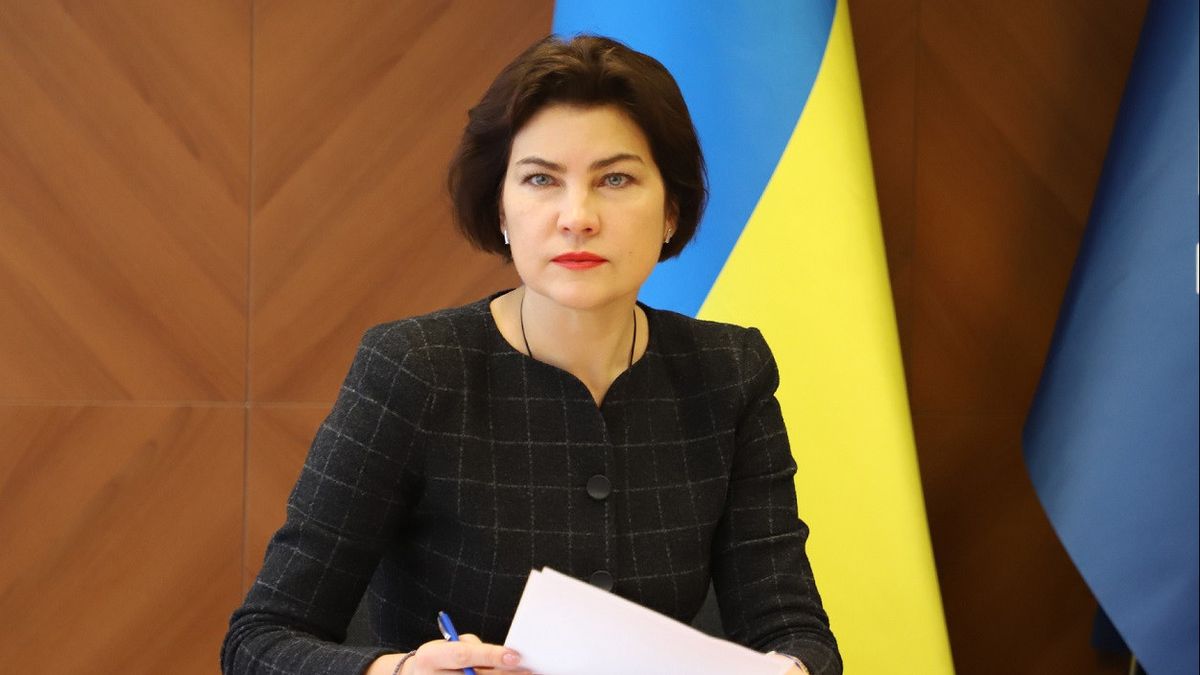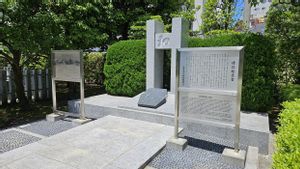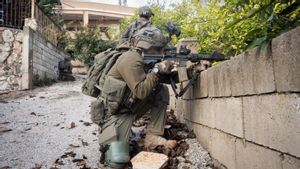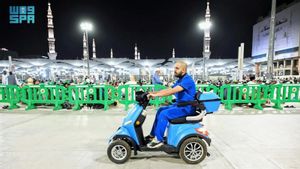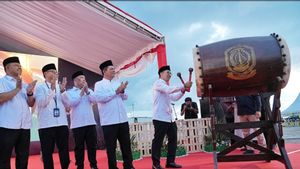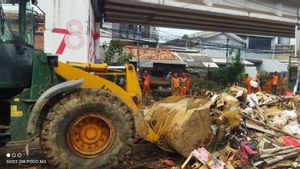JAKARTA - Prosecutors investigating war crimes in Ukraine are examining allegations of the forced deportation of children to Russia since the invasion, as they seek to establish genocide charges, the country's top prosecutor said in an interview.
International humanitarian law classifies the forced mass deportation of people during conflict as war crimes. The forcible transfer of children specifically qualifies as genocide, the most serious war crime, under the 1948 Genocide Convention which prohibits intent to destroy, in whole or in part, a national, ethnic, racial or religious group.
Attorney General Iryna Venediktova, who oversaw several war crimes investigations in Ukraine, said "we have more than 20 cases concerning the forced transfer of people" to Russia from various regions across the eastern European country, since the invasion began on February 24.
"From the first days of the war, we started the case about this genocide," Venediktova told Reuters, as quoted on June 3.
He said, amid the chaos and devastation wrought by the Russian offensive, a focus on the transfer of children offered the best way to secure the evidence needed to meet the strict legal definition of genocide: "That's why the forced transfer of these children is so important to us. "
Venediktova declined to provide a figure for how many victims were forcibly transferred. However, Ukraine's human rights ombudswoman Lyudmyla Denisova said in mid-May Russia had relocated more than 210,000 children during the conflict, part of more than 1.2 million Ukrainians who Kyiv said had been deported against their will.
A Kremlin spokesman did not respond to requests for comment on Venediktova's statements, nor the figures about Ukraine on Russian soil. Russia has in the past said it offered humanitarian assistance to those who wished to flee Ukraine voluntarily.
Meanwhile, Russia's state news agency TASS on Monday quoted an unnamed law enforcement official as saying, "more than 1.55 million people who arrived from the Ukrainian and Donbas regions have crossed the border with the Russian Federation. Among them, more than 254,000 children."
The Genocide Convention, a treaty adopted by the United Nations General Assembly after the Nazi Holocaust, stipulates five acts each of which could constitute a crime, if committed with genocidal intent: killing members of a group, causing them serious physical or mental injury, imposing conditions of living that are intended to destroy the group, prevent births, and forcibly remove children from the group.
Venediktova said investigations to establish a genocide case, including the forced deportation of children and other actions, targeted areas from northern Ukraine to Mykolaiv and Kherson on the southern coast. But gathering evidence is complicated by the war, he said.
"As of today we don't have access to the area. We don't have access to people we can ask, who we can interview. We are waiting for when this area will be vacated," he said.
Venediktova added, the Ukraine genocide investigation would rely on the help of international war crimes experts, who were recruited to form a mobile judiciary team that would facilitate the collection of evidence. He said each perpetrator must then be tried in the International Criminal Court (ICC), the world's permanent war crimes tribunal.
Meanwhile, officials in Ukraine say its courts will work at full capacity to deal with hundreds of possible war crimes cases and the idea is to submit larger cases to the ICC. International courts have experts with experience in adjudicating such complex cases and have the power to intervene when national legal systems require assistance.
To note, the ICC opened its own war crimes investigation in Ukraine in early March. In addition, war crimes in Ukraine are the focus of domestic investigations and are also being investigated by 18 countries that exercise so-called universal jurisdiction, which allows the most serious international offenses to be tried anywhere.
Local Ukrainian courts have held two war crimes trials, sentenced three captured Russian soldiers to prison terms ranging from 11 and a half years to life.
The English, Chinese, Japanese, Arabic, and French versions are automatically generated by the AI. So there may still be inaccuracies in translating, please always see Indonesian as our main language. (system supported by DigitalSiber.id)
